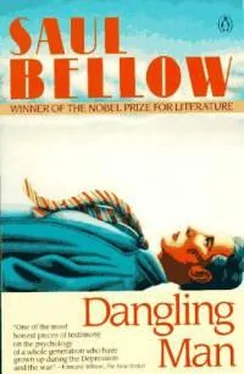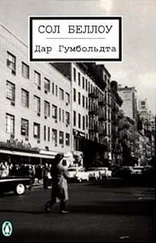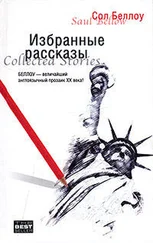Сол Беллоу - Dangling Man
Здесь есть возможность читать онлайн «Сол Беллоу - Dangling Man» весь текст электронной книги совершенно бесплатно (целиком полную версию без сокращений). В некоторых случаях можно слушать аудио, скачать через торрент в формате fb2 и присутствует краткое содержание. Жанр: Современная проза, на английском языке. Описание произведения, (предисловие) а так же отзывы посетителей доступны на портале библиотеки ЛибКат.
- Название:Dangling Man
- Автор:
- Жанр:
- Год:неизвестен
- ISBN:нет данных
- Рейтинг книги:4 / 5. Голосов: 1
-
Избранное:Добавить в избранное
- Отзывы:
-
Ваша оценка:
- 80
- 1
- 2
- 3
- 4
- 5
Dangling Man: краткое содержание, описание и аннотация
Предлагаем к чтению аннотацию, описание, краткое содержание или предисловие (зависит от того, что написал сам автор книги «Dangling Man»). Если вы не нашли необходимую информацию о книге — напишите в комментариях, мы постараемся отыскать её.
Dangling Man — читать онлайн бесплатно полную книгу (весь текст) целиком
Ниже представлен текст книги, разбитый по страницам. Система сохранения места последней прочитанной страницы, позволяет с удобством читать онлайн бесплатно книгу «Dangling Man», без необходимости каждый раз заново искать на чём Вы остановились. Поставьте закладку, и сможете в любой момент перейти на страницу, на которой закончили чтение.
Интервал:
Закладка:
Everything has changed, he's been left far behind, but he thinks it's as it used to be. He still wears that proletarian bang on his earnest foreheadand dreams of becoming an American Robespierre. The rest have compromised themselves to the ears, but he still believes in the revolution. Blood will run, the power will change hands, and then the state will wither away according to the in-ex-or-able logic of history. I'd gamble my shirt on it. I know his mind. Let me tell you something about him. Do you know what he used to have in his room? I went up with him one day, and there was a large. scale map of the city, with pins in it. So I said, "What's this for, Jim?"' And then-I swear this is true he started to explainthat he was preparing a guide for street-fighting, the day of the insurrection. He had all the critical streets marked in code for cellars and roofs, the paving materialThe number of newsstands at each corner that could be thrown into barricades (the Pa@ccisian kiosks, you member). Even abandoned sewers for hiding arms. He traced them through City Hall records. At that time didn't know how crazy it was. The things we used to acceptas natural why, it's unbelievable! And he's still in that. I'll bet he still has the map. He's an addict. They're all addicted people, Mike. Hey, Burns!
Hey!" I called out.
"Shut up, Joseph! For God's sake.
What are you doing? Everybody's looking at you."
Burns glanced briefly in my direction and then resumed his conversation with the other man, who, however, turned again to examine me.
"What do you know about that! Burns won't give me a tumble. I can't arouse him. I'm just gone.
Like that." I snapped my fingers. "I'm a eoutemptible petty-bourgeois renegade; could anything be worse? That idiot! Hey, addict!"
I shouted.
"Have you gone mad? Come on." Myron pushed back the table. "I'm going to get you out of here before you start a fight. I think you would start a fight.
Where's your coat, which is it? Why, you're a madman! Come back here!" But I was already out of his reach. I halted squarely before Burns.
"I said hello to you before, didn't you notice?"
He made no reply.
"Don't you know me? It seems to me that I know you very well. Answer me, don't you know who I am?"
"Yes, I know you," Burns said in a low voice.
"That's what I wanted to hear," I said. "I just wanted to be sure. I'm coming, Myron." I pulled my arm away from him, and we strode out.
I was aware that this had made a bad impression on Myron, but cared to do little to rectify it beyond explain. ing in a few short words that I had not been myself lately. But I did not say this until we had come to our second course in another restaurant. I became very quiet. I did not, and still do not, know where this outbreak came from, I suspect that it originated in sheer dishevelment of mind. But how could I explain this to Myron without becoming entangled in a long description of the state I was in and its causes? I would make him squirm and I myself wottld squander my feelings in self-pity.
We talked about the job, and he promised to recommend me to his superiors. He hoped, he said (he had sounded more positive on the phone), that I would get it. Myron likes me, I know he does. But he has worked hard to reach his present position and, realist that he is, it cannot have taken him long to decide that he could not afford to be responsible for me. I might prove unreliable, raise a cry about "the principle of the thing," and with one quirk or impulse, undo him. I could not blame him after what had just happened.
But still, I could not condemn myself altogether for it. It was wrong to make a scene but, after all, it was not so wrong to be indignant at Burns. To have invented a letter to Jane Addams was, however, clearly wrong.
Why on earth had I done that? I had a point to make, yes; but I should have thought of a better way.
For a moment, in the interest of elementary honesty, I thought of confessing. But if I told him that and no more (and I did not want to say more), he would become even more confused and distrustful. And why bother?
And so I said, as we were about to separate, "Mike, if you have anyone else in mind for that job, feel free to suggest him. I can't tell how long I'll be around. They may notify me any day, and then I'd be forced to walk out in the middle of things.
That wouldn't do. But thanks for thinking of me '@.
"Oh, now, Joseph, look '@.
"Never mind, Mike. And I really do mean that."
"I'll put your name up. And, Joseph, we ought to get together. I want to talk to you. One of these days."
"Well, all right. But the fact is, I'm not fit company. I'm all up in the air. And forget about the job." And I walked away quickly, certain that I had lifted a burden from him and, by so doing, had acquitted myself decently.
Later, thinking these incidents over, I felt less inclined to shoulder all the blame. It seemed to me that Myron might have been somewhat less worried about the spectacle I had made of myself and the attention I had drawn to him and more concerned about the cause of my outburst. If he had thought about it, he would have seen that there were reasons for my behavior, reasons that might well prove disquieting to a friend.
And, moreover, he might have found that what I was driving at was not without importance. forthe insolence of Burns figured the whole betrayalof an undertaking to which I had once devoted myfAnd my chagrin-though it seemed to find its object in Burns-was actually aimed Of those who had perverted it.
But then, I may be expecting too much from Myron. He has the pride of what he has become: a successful young man, comfortable, respected, safe for the present from those craters of the spirit which I have lately looked into. Worst of all, Myron has learned, like so many others, to prize convenience. He has learned to be accommodating. That is not a private vice; it has ramified consequences-terrible ones.
For months I have been angry with my friends. I have thought of them as "failing" me. Since the Servatius party, last March, I have been brooding over this failure. I have made it look like a major catastrophe, whereas it was noth-hag of the sort, and have made an obsessional grievance of betrayal where, in fact, only my shortsightedness was at faultmthat and the inflationary, grandiose, tasteless attitudes I dissociate myself from by pinning them on Joseph. In reality, the Servatius party merely forced on my attention certain defects in the people around me which, if I had been as astute as I should have been, I would have recognized long before, and of which I think I must have been partly aware all the time.
Partly, I say. And here I feel it necessary to revive Joseph, that creature of plans. He had asked himself a question I still would like answered, namely, "How should tt good man live; what ought he to do?"
Hence the plans. Unfortunately, most of them were foolish. Also, they led @. him to be untrue to himself. He made mistakes of the sort people make who see things as they wish to see them or, for the sake of their plans, must see them.
There might be some justice in the view that man was born the slayer of his father and of his brother, full of instinctive bloody rages, licentious and unruly from his earliest days, an animal who had to be tamed. But, he protested, he could find ha himself no such history of hate overcome. He could not.
He believed in his own mildness, believed in it @cc. i piously. He allowed this belief to interfere with his natural dtrewdness and did both himself and his friends a dis, service. They could not give him what he wanted.
What he wanted was a "colony of the spirit," or a group ihose covenants forbade spite, bloodiness, and cruelty. hack, to tear, to murder was for those in whom the sense of the temporariness of life had shrunk. The world was crude and it was dangerous and, if no measures were taken, existence could indeed becomein Hobbes' phrase, which had long ago lodged in loseph's mind-"nasty, brutish, short." It need not become so if a number of others would combine to defend themselves against danger and crudity.
Читать дальшеИнтервал:
Закладка:
Похожие книги на «Dangling Man»
Представляем Вашему вниманию похожие книги на «Dangling Man» списком для выбора. Мы отобрали схожую по названию и смыслу литературу в надежде предоставить читателям больше вариантов отыскать новые, интересные, ещё непрочитанные произведения.
Обсуждение, отзывы о книге «Dangling Man» и просто собственные мнения читателей. Оставьте ваши комментарии, напишите, что Вы думаете о произведении, его смысле или главных героях. Укажите что конкретно понравилось, а что нет, и почему Вы так считаете.







